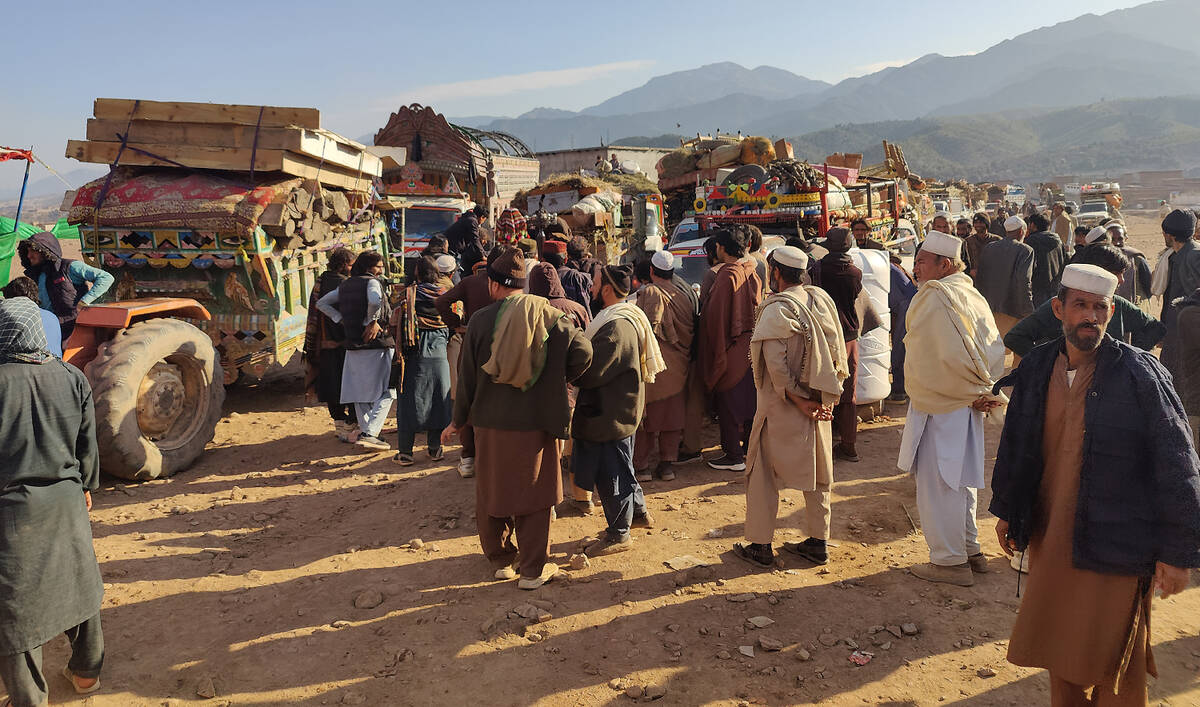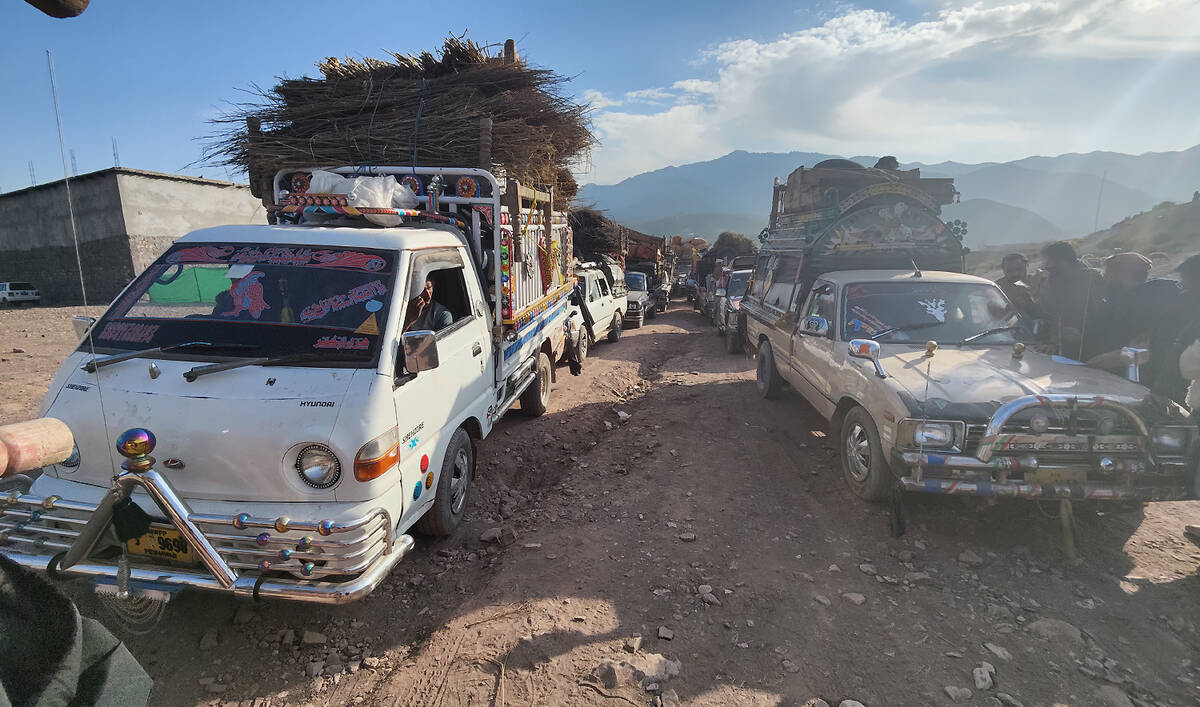KOHLU: Plodding over the horizon of western Pakistan, camel-riding officials spy a far-flung cluster of rough wooden homes and start tallying its tribespeople as the national census gets under way.
Beyond the reach of roads, power lines and TV signals in central Balochistan province, this arid settlement of five reed huts has no name and hosts barely 15 nomads — three families herding goats and sheep.
“We ride for hours,” said local census supervisor Faraz Ahmad. “We even have to live for days out in the mountains among the people we’re counting.”
In cities and towns, teams wend their way from door to door on motorbikes. But in rural Balochistan, the tarmac gives way to craggy trails that then dissolve altogether in a wilderness of khaki rockland.
A fleet of gurning camels is the only option to get the job done.
“It takes a while to convince them to share their details,” census taker Mohammad Junaid Marri told AFP in rural Kohlu district, 210 kilometers (130 miles) east of the provincial capital Quetta and one hour by camel from the nearest discernible road.
“In some cases, it’s kind of funny. Since every census team has a security escort, sometimes people run away,” the 30-year-old said after his garlanded camel Bhoora bowed to let him slide off its hump and start peppering families with questions.
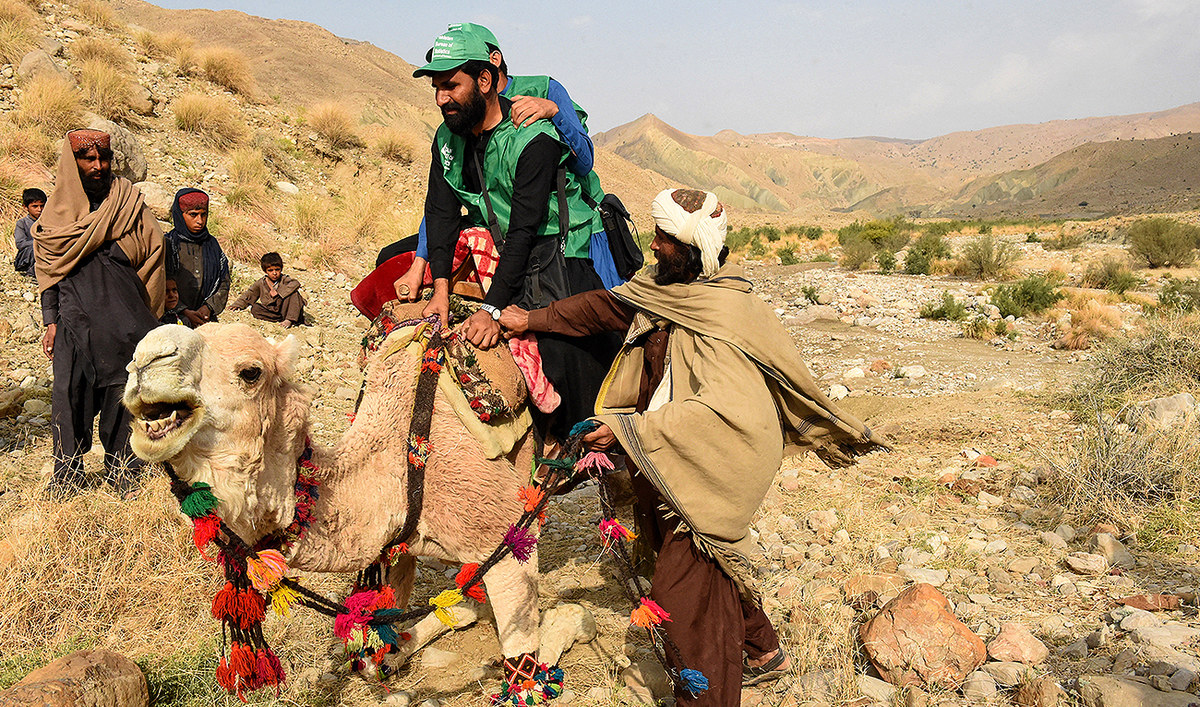
In this picture taken on March 23, 2023, census officials from the Pakistan Bureau of Statistics ride a camel to collect information from Marri tribespeople living in the remote mountainous area of Mawand as part of a national census in southwest Pakistan’s Kohlu district, Balochistan province. (Photo courtesy: AFP)
Between five and 10 percent of Kohlu residents live in areas so inaccessible that camels are the only practical transport, estimates 34-year-old Ahmad.
They are rented for 1,000 rupees ($3.50) a day and the price includes a cameleer — a man trudging ahead to lead the bristly beasts on a leash.
In a nation divided along ethnic lines, enumerating citizens — 207 million at last count and an estimated 220 million today — is a politically charged act that can alter claims to power and scant state resources.
The data will also be used to outline constituencies in future elections.
Balochistan is Pakistan’s largest and least populous province, rich in natural resources but poor by all other measures.
A separatist insurgency has long simmered in the region, fueled by the grievance that Islamabad has failed to share the spoils of wealth extracted from Balochistan.
As Marri and Ahmad approach the hamlet on one camel, trailed by another carrying a guard wielding a weathered machine gun, they are eyed by a teenager through a pair of binoculars as children in traditional red floral dress gather round.
“There’s a lack of awareness among people about the census — they don’t understand the benefits and downsides,” said Ahmad. “They don’t trust us and fear we may cheat them.”
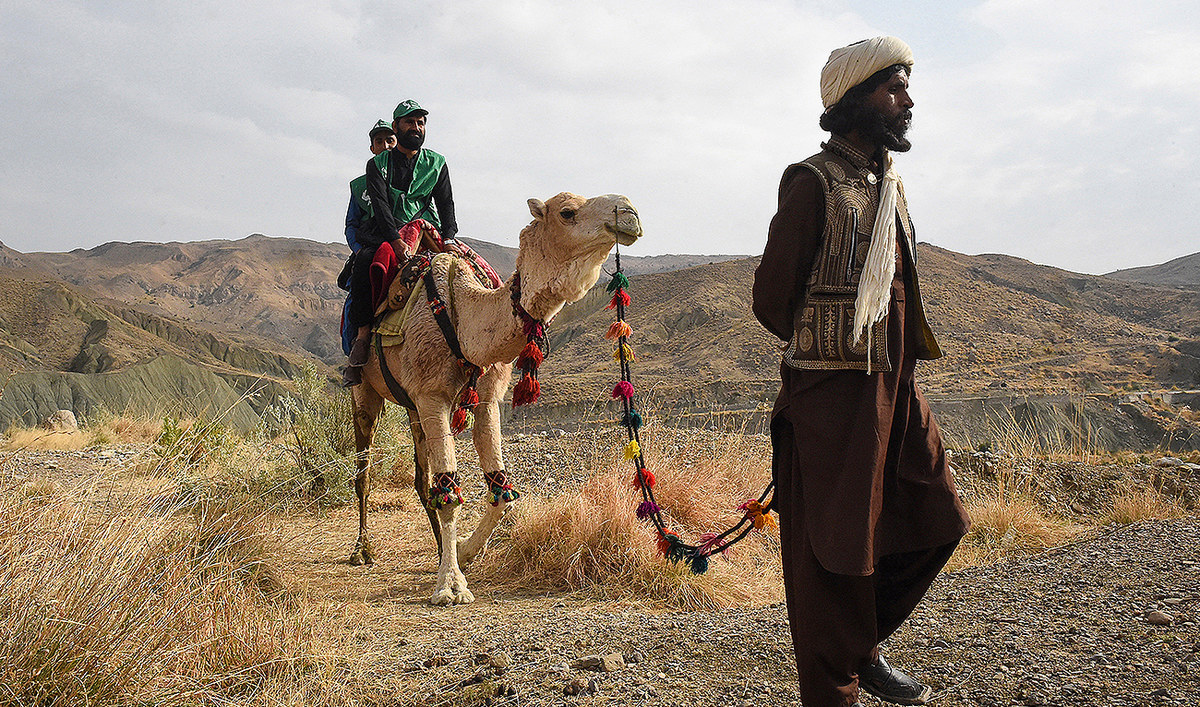
In this picture taken on March 23, 2023, census officials from the Pakistan Bureau of Statistics ride on a camel as they arrive to collect information from Marri tribespeople living in the remote mountainous area of Mawand as part of a national census in southwest Pakistan’s Kohlu district, Balochistan province. (Photo courtesy: AFP)
Elsewhere, police guarding census teams in the nation’s remote and restive northwest have been killed by the Pakistani Taliban.
Despite the decidedly low-tech mode of transport, this is the first time Pakistan’s census will be compiled digitally, on tablets rather than reams of paper.
Nonetheless, the old grievances remain.
“What benefits will we get from the census?” asked Mir Khan, 53, in another nearby speck of a settlement at the foot of mountains.
“We will get nothing. The influential people snatch everything the government wants to distribute to the poor.”
“We have never seen any support from the government,” grumbles his cousin Pando Khan, 58.
“We see people when they’re campaigning for us to vote for them, and later they never return.”
However, after swapping their personal details with families according to local tribal customs, Ahmad and Marri convince them to answer 25 questions to give them a clearer picture of present-day Pakistan.
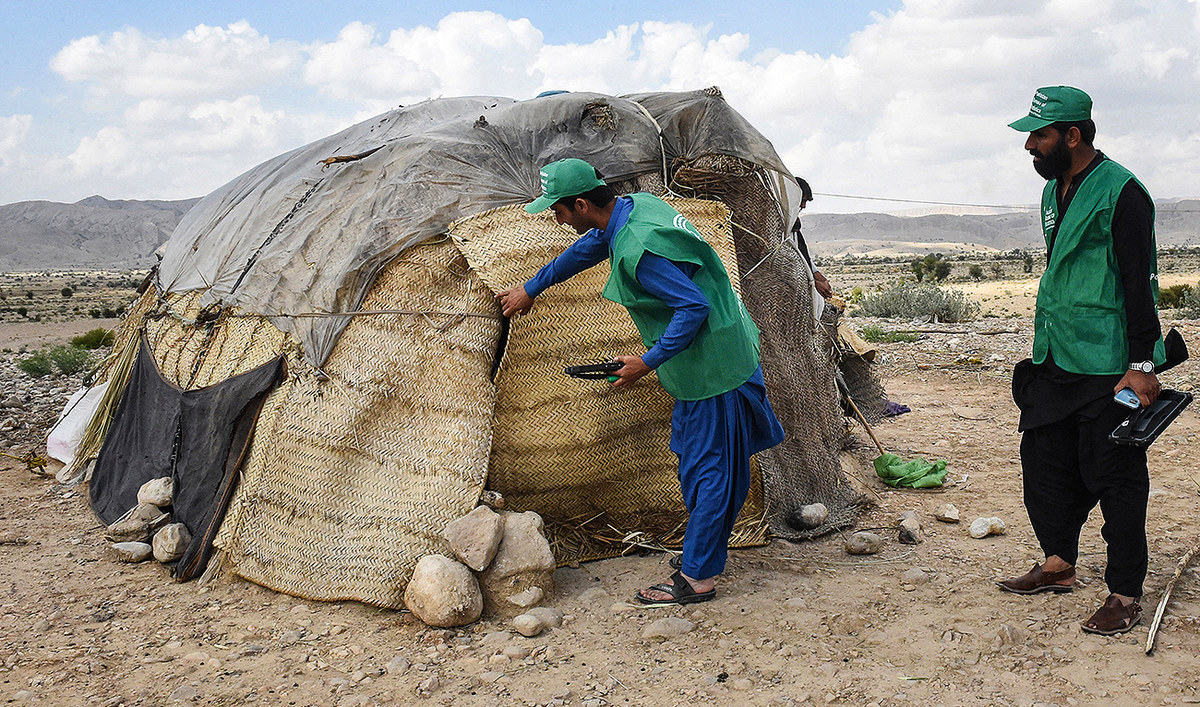
In this picture taken on March 22, 2023, census officials from the Pakistan Bureau of Statistics attempt to contact Marri tribespeople living in the remote mountainous area of Mawand as part of a national census in southwest Pakistan’s Kohlu district, Balochistan province. (Photo courtesy: AFP)
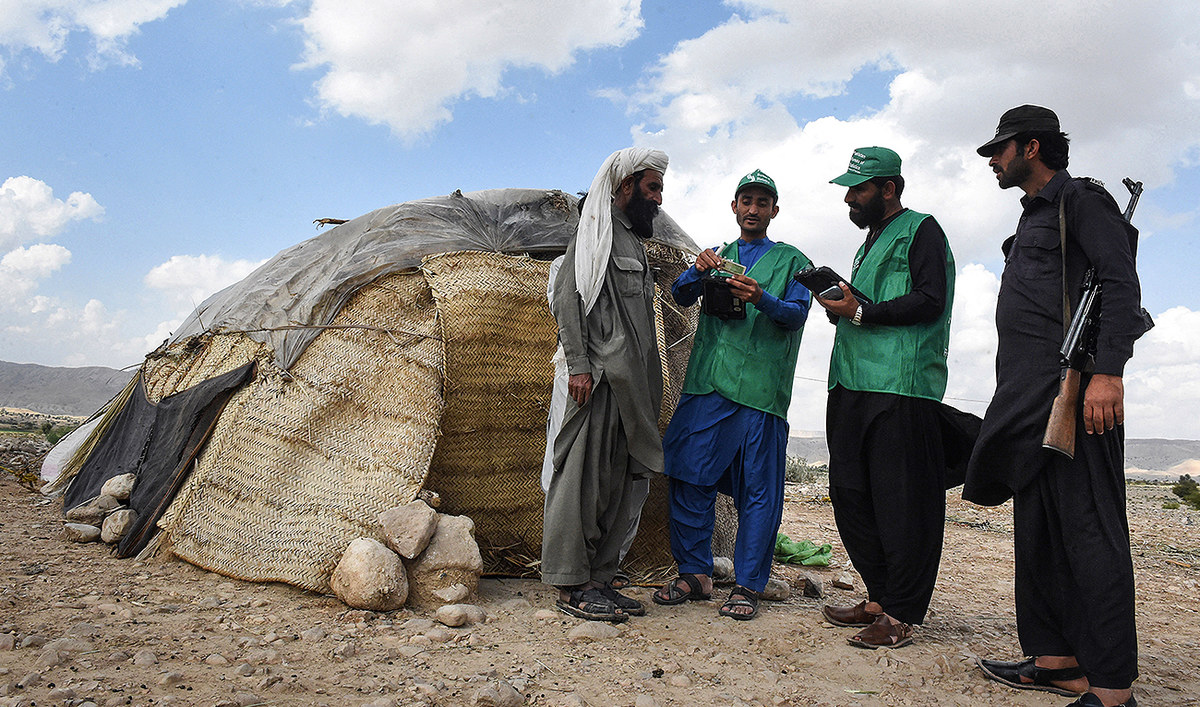
In this picture taken on March 22, 2023, census officials from the Pakistan Bureau of Statistics (in green) collect information from a Marri tribe man living in the remote mountainous area of Mawand as part of a national census in southwest Pakistan’s Kohlu district, Balochistan province. (Photo courtesy: AFP)





